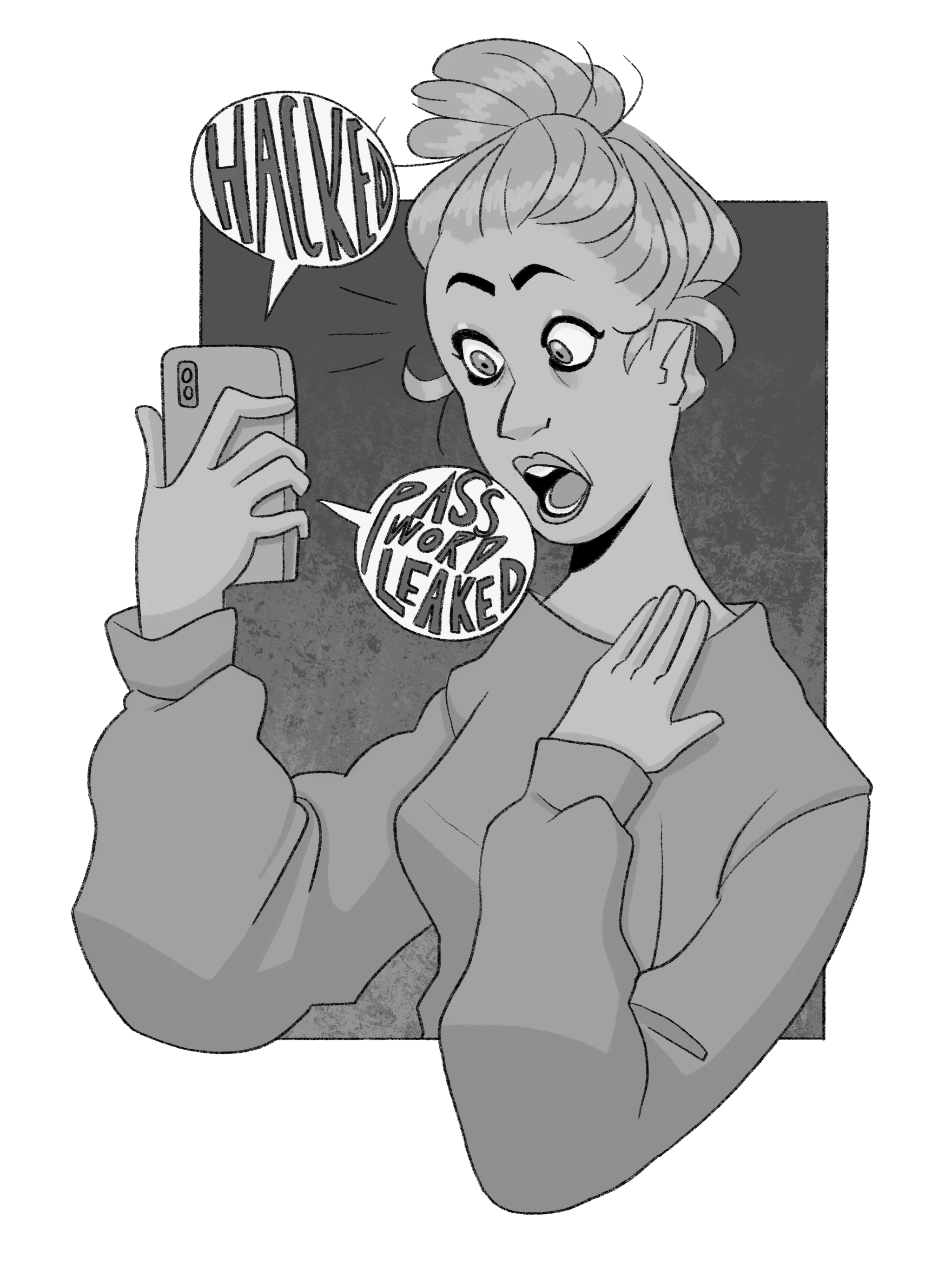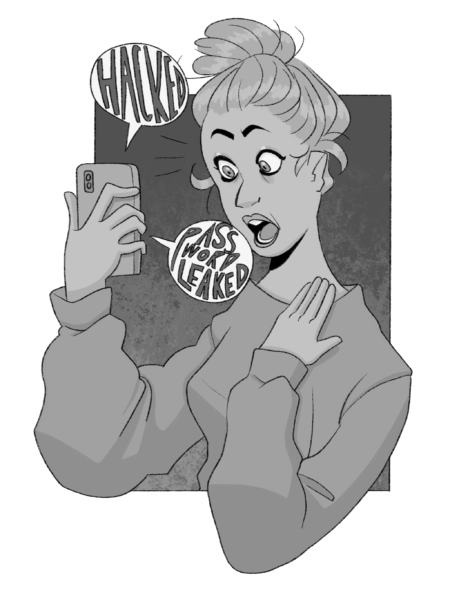
The Internet allows us to search up whatever we want in an instant, play online games, listen to music and binge-watch our favorite shows.
In a fraction of a second, you can have access to thousands of sites and endless information, but with this convenience comes a carelessness of how we use this technology. Without a second thought, we go to whatever website and start entering our personal information: name, address, credit card number.
Whenever you go to any site, you are leaving an online footprint. Although deleting your history seems like you are getting rid of it, the data is still present and can be accessed by someone if they really want it. This brings into question whether what you do online is truly private or not.

Freshman Uma Drinan believes that even though accounts could be private, information still can find a way out without you intending it to.
“I don’t feel that [social media is] very private because even if you put yourself on a private account, once you post something, [even though] you can delete it, there are screenshots, and [information] can get spread anywhere,” Drinan said. “Once you post something, it’s out there forever.”
Other apps and online programs are subject to hacking as well. FaceApp, a recently popular app that allows you to change your appearance, was found to be storing metadata of the user’s face into its Russian servers.
“I think that people should be more aware of how they send their images and data, as well as what apps they download on their phone because in the fine print some apps can take your location data,” said freshman Ayman Ahmed Khan. “Some apps can take your data when you send images or texts as well, so just be aware when you download [anything]. That ‘terms and conditions’ text that shows up at the start of every app could have anything written in it, but most people just skip over it without reading the details, which makes most people susceptible to the company’s demands.”
Another issue many people are oblivious to is smart home devices. These devices are convenient, giving answers to math homework or turning on the lights remotely. Although the connection it creates within a house between devices may seem helpful, it can actually the root of the problem. In 2018, a malware infected over half a million devices which gave the hackers access to the people’s home networks. With no built-in security of their own, these devices are easily hackable. Imagine having Alexa connected to a smart heating system when all of the sudden your house temperature changes to 100 degrees and you can’t do anything to stop it.
Freshman Elliot Hassaine-Lafrance expressed his concern for such easily accessible data.
“Now I’m kind of frightened to get a smart home device because [I] wouldn’t want people to see my face or get my information,” Lafrance said. “People who are selling these smart home devices should also [be aware] of this, and try to make them safe[er] so that hackers can’t [access them].”
“People should be more aware of how they send their images and data”
Junior Aaren Wong, a programming club member, explained some steps that people should take to be more secure.
“When you’re online, it’s generally a good [idea] to have either a good VPN (Virtual Private Network) or some sort of device security program that prevents people from detecting you, but that might not always be infallible,” Wong said. “So you always want to make sure that you don’t leave your personal information just laying around, so always secure your accounts. If you type in your password and your password is something like ‘password123’ … that’s not a secure password.”
People being unaware of the risks of malware and data loss is what allows hackers to steal data in the first place. Passwords should be kept a secret, and personal information shouldn’t be put out so easily. Staying informed and knowing how to be safe by taking extra measures to protect yourself such as downloading anti-virus software can lower the risk of data being stolen and can keep the convenience that the internet provides, without the underlying threat of being hacked.





